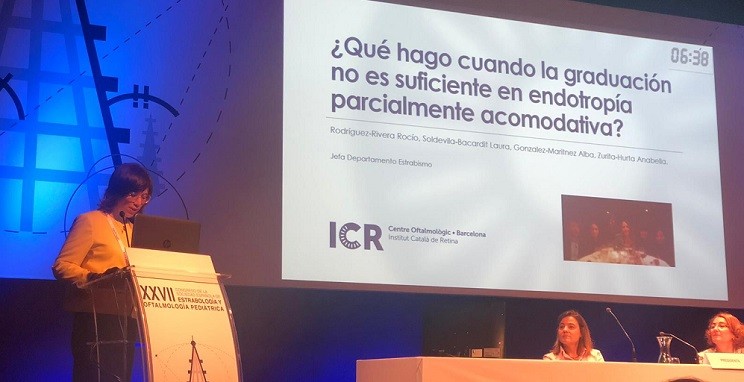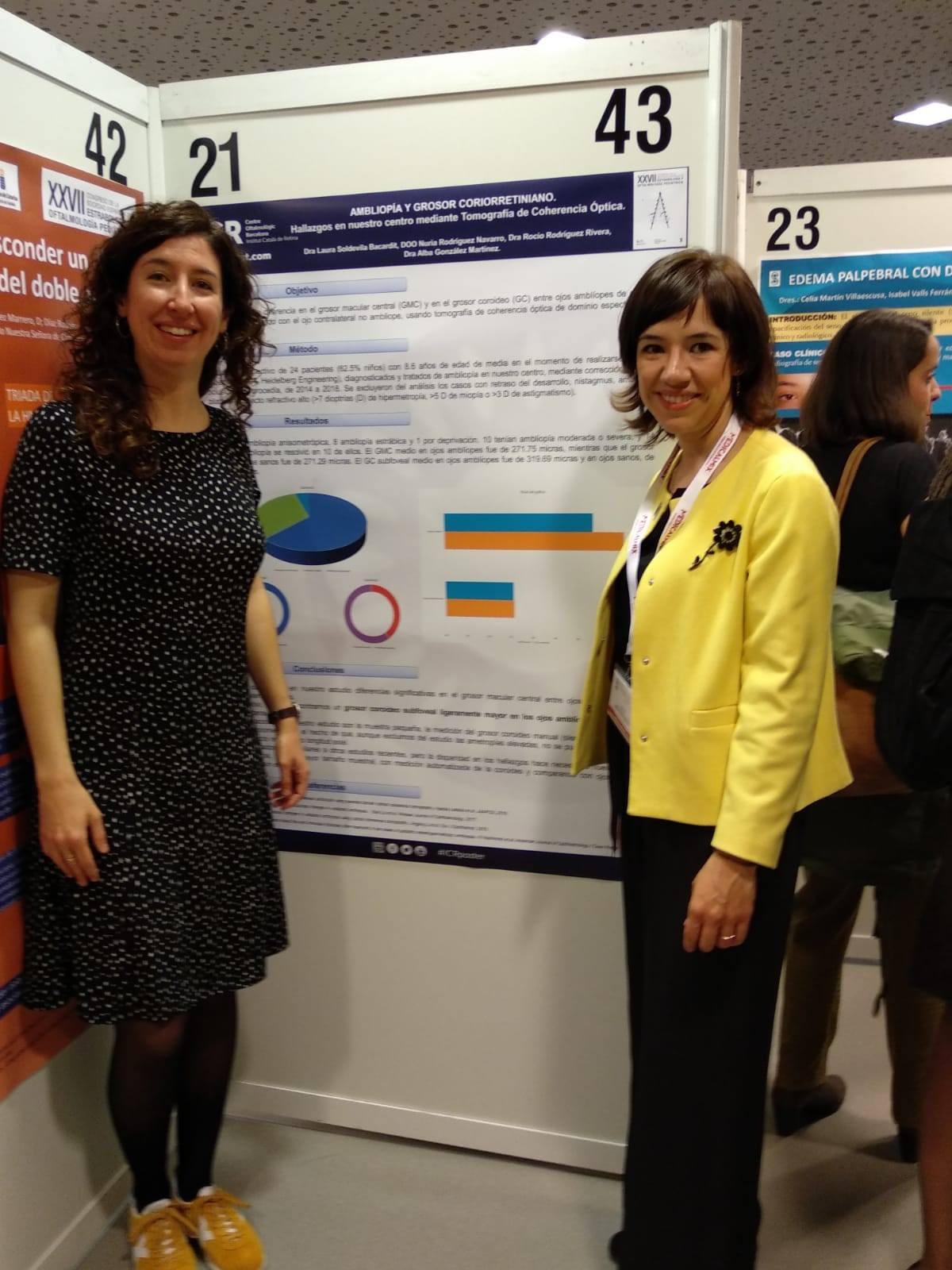
Dr. Rocío Rodríguez and Dr. Laura Soldevila, members of the departments of Pediatric Ophthalmology and Strabismus, participated in the 27th Congress of the Spanish Society of Pediatric Ophthalmology and Strabismus that was held on 9, 10 and 11 May in Burgos (Spain). Throughout three days, the most prominent Spanish specialists presented, discussed and shared their professional experiences as well as the results of studies they had carried out.
Dr. Rodriguez presented a communication prepared with other ICR ophthalmologists about the use of botulinum toxin for partially accommodative esotropia. As she explained, there are cases in which this pathology, quite frequent in childhood, does not improve even after the use of graduation. Dr. Rodriguez shared the results obtained from a study with patients between 5 and 11 years who received botulinum toxin for the treatment of partially accommodative esotropia. As confirmed by the doctor, the study concluded that botulinum toxin is useful in the treatment of this pathology.
The departments of Pediatric Ophthalmology and Strabismus of ICR were also present in the section dedicated to the defense and discussion of posters. Dr. Laura Soldevila presented the poster entitled Ambliopía y grosor coriorretiniano. Hallazgos de OCT en nuestro centro. (“Amblyopia and chorioretinal thickness. Findings of OCT in our centre.”), which was carried out together with Dr. Rocío Rodríguez, Dr. Alba González and optometrist Núria Rodríguez. They analysed whether there is a difference in the central macular thickness (CMM) and in the choroidal thickness (CT) between amblyopic eyes of different aetiology, comparing with the non-amblyopic contralateral eye by spectral domain optical coherence tomography (SD-OCT).
In addition, Dr. Laura Soldevila also presented the poster entitled Análisis del riesgo de diplopía previamente a cirugía refractiva o de cataratas. Protocolo en nuestro centro. (“Analysis of the risk of diplopia before refractive or cataracts surgery. Protocol in our centre.), which was prepared together with Dr. Rocío Rodríguez, Dr. Miguel Espinosa-Saldaña and optometrist Nuria Rodríguez. They analysed, staged and shared the protocol activated in ICR when there is a risk of diplopia in patients who want to undergo refractive or cataract surgery. As the doctor explained, the risk is low but growing due to the large number of surgeries of this type that are carried out in countries like Spain. In this sense, the referral to the Department of Strabismus and Orthoptics of the patients considered at risk is key.

Contact us or request an appointment with our medical team.